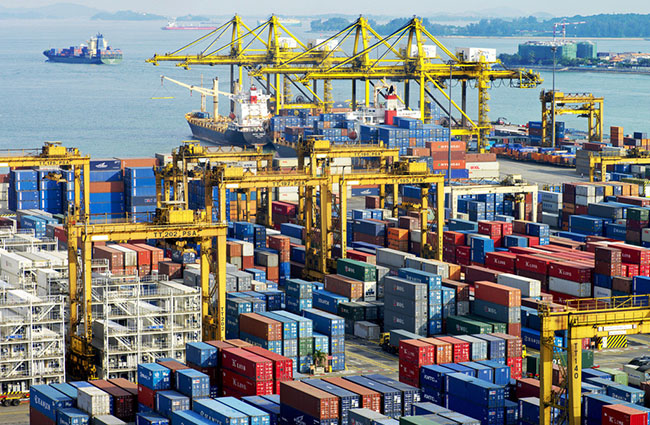
Chinese ports have announced they will waive their storage charges for loaded containers amid the extended holidays in the country enacted to deal with the coronavirus outbreak.
More than 25 major coastal and river box ports, led by the world’s largest, Shanghai, announced over the weekend or on Monday that they would exempt the fees during the period between January 24 and February 9.
The final day in that timeframe is when many domestic cities will resume work from China’s New Year holiday, which has been prolonged by about 10 days as a measure to stall the spread of the disease.
The exemption policy will “help customers to arrange their exports and imports more flexibly during this special period affected by the novel coronavirus,” said Shanghai International Port Group in a statement.
Out of the 10 largest container ports globally, seven are in “the world factory” under Beijing’s governance. Their handling heavily relies on exports, according to rankings by the Lloyd’s List’s One Hundred Ports 2019.
Economists expect the virus, which originated from the city of Wuhan and has infected more than 17,000 people and killed 361 at the last count, to strike a big blow to China’s trade and economic results in the first quarter or even beyond.
In northern China, ports offering the waivers on storage fees include Dalian, Yingkou, Tianjin, Qinghuangdao, Tangshan, Cangzhou, followed by Qingdao, Rizhao, Yantai and Bohai Bay in eastern China.
Along the Yangtze River, the ports of Shanghai, Ningbo-Zhoushan, Taicang, Lianyungang, Wuhan, and Chongqing have joined the moves.
In the lower part of the country, Fuzhou, Xiamen, Shenzhen, Guangzhou, Zhuhai, Zhanjiang, Dongguan, and Beibuwan are also part of the coalition cutting fees.
In addition, the state-owned China Merchants Port has announced similar policies wherever it operates or has stake in various container terminals in China.
The price cuts vary slightly in detail at different ports.
For example, Shandong Port Group, which oversees Qingdao, Rizhao and Yantai — and Jiangsu Port Group — which governs Taicang and Liangyungang, said their exemptions on storage fees applied only to imports.
Elsewhere, Tianjin Port Group restricted the scope of its exemption on storage fees to imports of containers filled with goods used to deal with the virus.
Source:lloydslist
The opinions expressed herein are the author's and not necessarily those of The OLO News.
Quality Companies